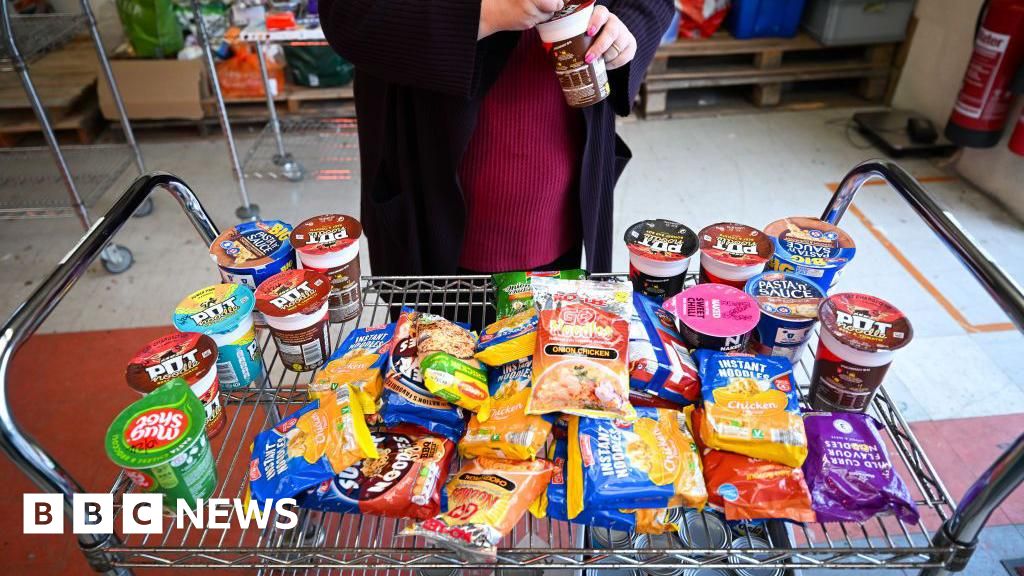
A third of children under five are living in UK homes where there is not enough access to healthy and nutritious food, according to anti-poverty charity Trussell Trust.
Surveys by the charity found more than 14 million people in the UK faced the prospect of going hungry last year due to lack of money.
This marks an increase from the trust’s last survey in 2022 when that number was 11.6 million people.
The government said it is “determined to tackle the unacceptable rise in food bank dependence”.
The survey was conducted in two parts, the first by Ipsos (a market research organisation) on behalf of the charity, who sent questionnaires to 4,427 random adults.
A second survey was also conducted by Ipsos, this time with 3,866 adults who had been referred to food banks.
There were also interviews conducted with people who had and hadn’t visited food banks but were identified as facing “food insecurity”.
Food insecurity is defined by the Evidence and Network on UK Household Food insecurity (ENUF) as the lack of money to ensure reliable and constant access to food that meets dietary and nutritional needs.
ENUF says it can be “acute, transitory, or chronic”, and ranges in severity from “worry about not being able to secure enough food to going whole days without eating”.
Figures suggest that three in 10 of the people that have been referred to food banks come from working households, with one in four children in the UK living in what the charity refers to as food insecure households.
Helen Barnard, at Trussell Trust, said she had been told parents were “losing sleep, worrying about how they will pay for new shoes, school trips, keep the lights on or afford the bus fare to work”.
She added: “We have already created a generation of children who’ve never known life without food banks. That must change”.
Ms Barnard called on the government to address the results of the survey, referencing Prime Minister Keir Starmer’s manifesto pledge to tackle poverty and end the need for food banks.
A Department for Work and Pensions spokesperson told the BBC:
“In addition to extending free school meals and ensuring the poorest children don’t go hungry in the holidays with £1billion to reform crisis support, our child poverty taskforce will publish an ambitious strategy later this year.
“We are also overhauling job centres and reforming the broken welfare system to support people into good, secure jobs, while always protecting those who need it most.”
Other findings from the survey of those accessing food banks included an increase in the number of people from working households – up from a quarter of households in 2022 to a third in 2024.
Those in manual and service jobs were the worst affected, with care workers and bus drivers highlighted as some of the working people most at risk of going hungry.
Trussell Trust said low incomes were the main cause of hungry households in the UK.
The survey of people referred to food banks revealed that households who accessed them would be left with an average of £104 a week to pay for food, bills, work or school travel and essential toiletries.
This worked out to 17% of what the average UK household would have left after rent or mortgage payments.






